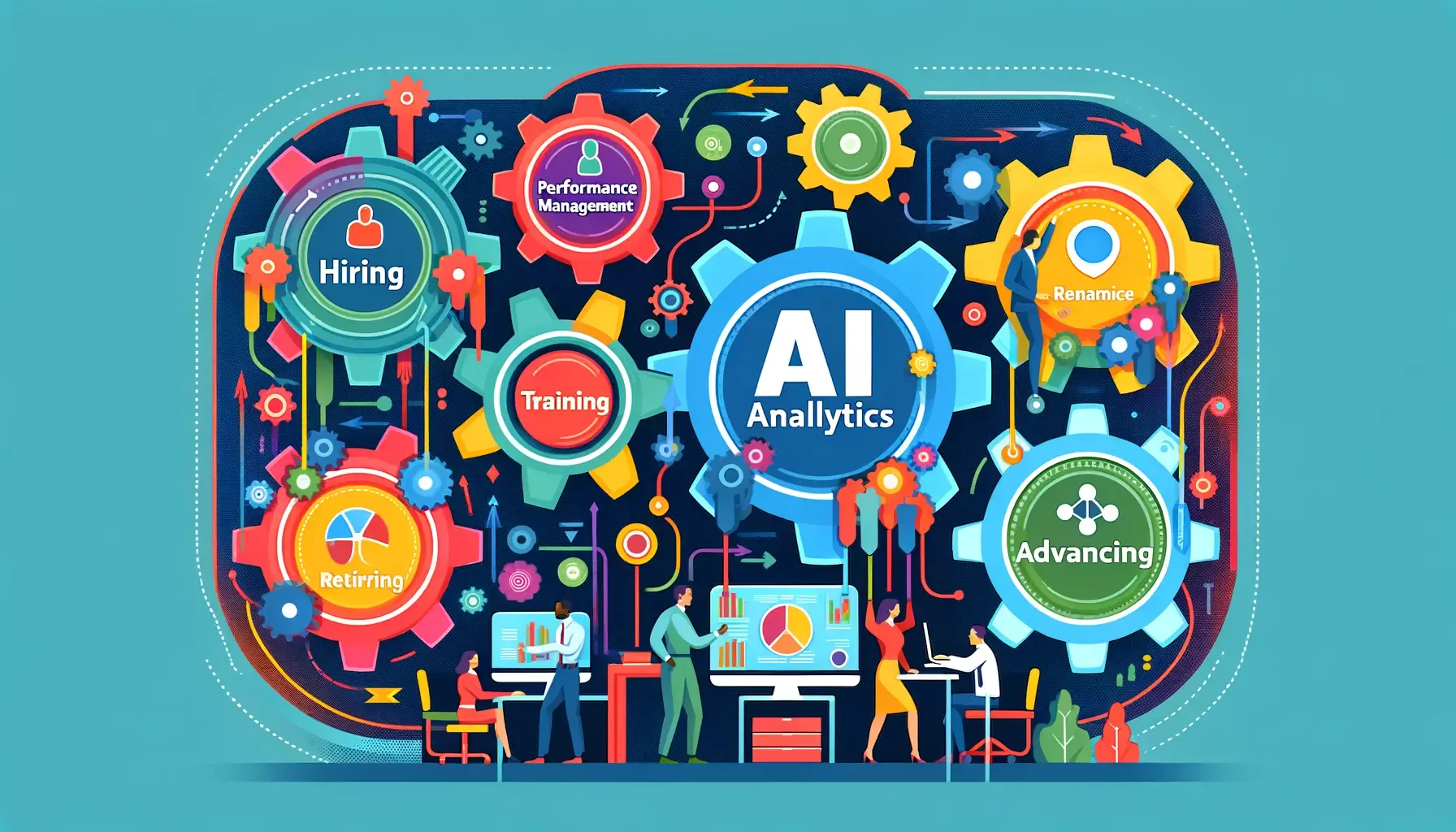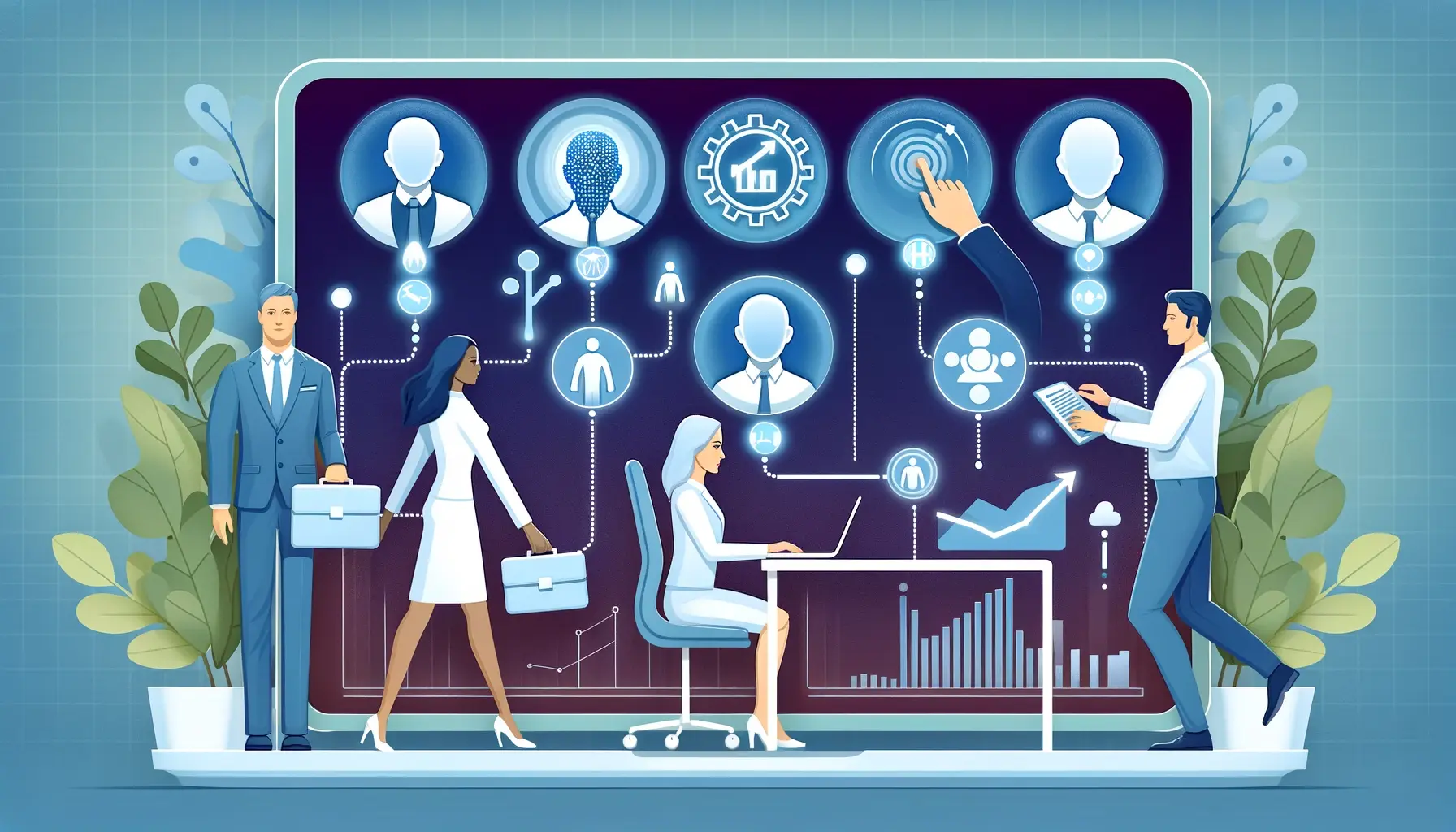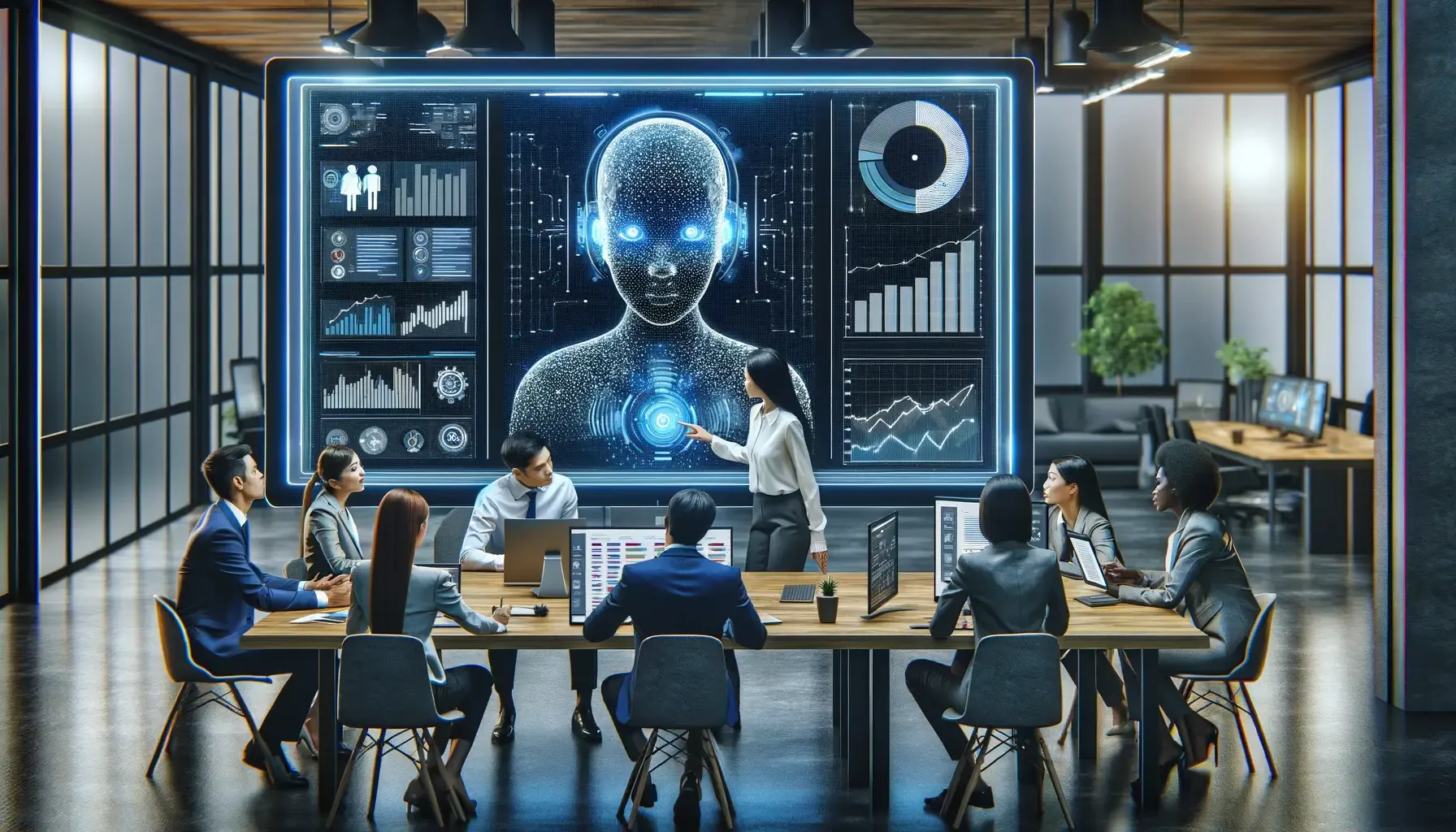The integration of Artificial Intelligence (AI) into Human Resources (HR) has marked a paradigm shift in how organizations manage the employee lifecycle. AI for HR Analytics is at the forefront of this transformation, offering unprecedented insights that empower HR professionals to enhance the employee experience from recruitment to retirement. It delves into how AI-driven HR analytics can not only streamline HR operations but also significantly enhance the employee experience.
Table of Contents
AI For HR Analytics

AI for HR Analytics refers to the sophisticated use of machine learning, data analytics, and artificial intelligence in the field of human resources to make more informed decisions and improve HR processes. This technology leverages vast amounts of data—from employee performance records, engagement surveys, recruitment processes, and more—to uncover insights that can transform the workplace. Here’s a deeper look at what AI for HR Analytics encompasses and its implications for workforce management.
This article explores five dynamic ways in which AI-driven analytics are making a significant impact.
Enhancing Talent Acquisition through Predictive Hiring
AI for HR Analytics is reshaping talent acquisition by utilizing predictive algorithms to identify candidates who are not just a fit for the current role but also for future organizational needs. By analyzing data from various sources, AI can help HR professionals forecast the probability of a candidate’s success within the company, reduce hiring biases, and identify potential high-performers.
These algorithms can analyze a multitude of data points from resumes, social media, previous employment history, and various other sources to predict how well a candidate will perform in a role and fit into the company culture.
Example: InnovateEdge Inc. A tech startup implemented an AI-driven talent acquisition platform that analyzes resumes and predicts candidate success by comparing their profiles with those of top-performing employees. This resulted in a 25% decrease in employee turnover in the first year.
Streamlining Onboarding for a Strong Start
AI tools can personalize the onboarding process, ensuring new hires are engaged and well-informed from day one. By analyzing data on learning styles and job roles, AI can tailor onboarding programs to suit individual needs, accelerating the path to productivity.
AI can identify the most effective ways to engage each new hire. For example, some employees might benefit more from visual learning materials, while others might excel with interactive, hands-on training. AI’s ability to personalize onboarding processes marks a transformative shift in workforce management.
Example: GlobalTech Solutions A multinational corporation introduced an AI-based onboarding system that creates customized learning paths for new employees, leading to a 40% reduction in time-to-productivity for new hires.
Revolutionizing Performance Management with Real-Time Analytics

Performance management is no longer a once-a-year event. With AI for HR Analytics, companies can provide ongoing, real-time feedback to employees. AI systems analyze various performance metrics and offer actionable insights to both managers and employees, fostering a culture of continuous improvement.
AI for HR Analytics is a transformative force in the realm of human resources, especially within the ambit of talent acquisition. By tapping into the power of AI for HR Analytics, companies can not only streamline their recruitment processes but also enhance the accuracy and efficiency of their talent search.
Example: Dynamic Sales Inc. – A prominent organization specializing in software sales with a wide customer base ranging from small businesses to large enterprises. implemented an AI-powered performance tracking system that provides sales reps with real-time feedback and suggestions for improvement, resulting in a significant uptick in sales performance metrics.
Personalizing Employee Development with AI-Enhanced Learning
AI for HR Analytics allows for the creation of personalized learning and development programs. By understanding each employee’s career aspirations and learning preferences, AI can suggest courses and pathways that align with their goals and the company’s needs.
By harnessing AI for HR Analytics, companies can transform their learning and development strategies into dynamic, personalized systems that foster employee engagement, skill acquisition, and career progression aligned with business goals.
Example: Global Financial Solutions (GFS) – A multinational financial services firm with a diverse range of services including banking, asset management, and financial consulting uses to analyze job trends and employee skill sets, recommending bespoke learning opportunities that align with both individual career growth and the company’s strategic direction.
Smoothing the Transition to Retirement

AI can play a crucial role in preparing employees for retirement. By analyzing financial data, career trajectories, and personal goals, AI can provide employees with insights and planning tools for a well-organized and fulfilling retirement.
AI for HR Analytics can be utilized to create personalized retirement plans by examining a vast array of data, including employees’ financial contributions, their career growth within the company, historical salary data, and personal retirement goals.
Example: MedLife Healthcare Group – A major healthcare provider with a substantial workforce spread across hospitals, clinics, and administrative branches implemented an AI-powered performance tracking system that provides sales reps with real-time feedback and suggestions for improvement, resulting in a significant uptick in sales performance metrics
Conclusion
The strategic integration of AI for HR Analytics within the employee journey encapsulates a new era of workforce management. From streamlining the hiring process to enhancing performance reviews, and from personalizing employee development to ensuring a fulfilling retirement, AI stands as a beacon of innovation.
These five dynamic approaches demonstrate how AI can not only simplify HR processes but also foster a more engaged, satisfied, and productive workforce. As we look to the future, it is clear that the organizations that embrace these advancements will lead the charge in cultivating workplaces where people and technology work in harmony for mutual success.
Thus, AI for HR Analytics is not merely a tool; it is the cornerstone of a revolutionary and empathetic approach to human resource management that values both the individual and the collective journey from hiring to retiring.